World Languages and Cultures
WLC Festival of Languages, Cultures, and Ideas
This page shares information about previous FLCI presenters and events.
The Festival of Languages, Cultures, and Ideas brings together all the members of the CSUMB community to celebrate our connections in a global world and emphasize the value of cultural diversity.
.png)
Spring 2022 Theme: Voices Together: Reuniting and Rebuilding Communities
View Recordings
View recordings from many of the 2022 FLCI presentations and musical performances.
2022 Schedule at a Glance
Thursday, March 17, 2022
| Event | Location | Time |
|---|---|---|
| Fábrika T-shirt Screen Printing Workshop - 'free T-Shirt' | VPA Bldg 70 | 10-12 |
| Cultural Tabling & Performances | Main Quad | 11:30-2 |
| Maya Chinchilla, Storytelling & Poetry | Zoom | 2-3 |
| Meleia Simon-Reynolds, Community-Driven Archiving | Zoom | 3-4 |
| Asian American and Pacific Islander (AAPI) Panel Discussion | Zoom | 4-5 |
| Dr. Russell Rodríguez, Fandango y Convivencia | Zoom | 5-6 |
Friday, March 18, 2022
| Event | Location | Time |
|---|---|---|
| Dr. Kris Knisely, Gender Justice & Language Education | Zoom | 10-11 |
| Japanese Tea Ceremony | UC Living Room | 2-3:30 |
| Music at World Theater | 4-7 | |
| Akina Miyata & Bobby Phillips, Jazz Performance |
World Theater & Zoom |
4-5 |
| MPA and WLC Music Sessions | World Theater & Zoom | 5-6 |
| Watsonville Taiko & Shinsho-Mugen Daiko | World Theater & Zoom | 6-7 |
Acknowledgments
The School of World Languages and Cultures extends our appreciation for the partnership and interdisciplinary engagement from across the campus, including: College of Arts, Humanities, and Social Sciences (CAHSS); Computing and Design (CD); Humanities and Communication (HCOM); International Programs (IP); Music and Performing Arts (MPA); Social, Behavioral, and Global Studies (SBGS); Visual and Public Art (VPA); the World Theater; and CSUMB Special Events Funding.
FLCI 2022 Guest Speaker, Performance and Presentation Information
Fábrika T-shirt Screen Printing Workshop
The VPA-sponsored screen printing workshop features a 2022-themed image printed on a takeaway T-shirt at VPA Building 70, Thursday from 10-12. The first 100 people get to print a free T-shirt to take home.
Cultural Tabling & Performances
Multiple CSUMB Student Clubs tabled on the Main Quad, Thursday, from 11:30-2. Groups included M.E.Ch.A. de CSUMB, Spanish Club, Native American Students United (CSUMB), Asian and Pacific Islander Association Club, Anime Club, and Japan Club. They shared information about their events and activities alongside multiple campus organizations including the International Programs Office, Otter CrossCultural Center (OC3), and the Undocu-Success Support Program. Some clubs provided performances.
Unicorn Medicine: Tender Hearts in Troubled Times
Maya Chinchilla
Thursday 2-3, Zoom
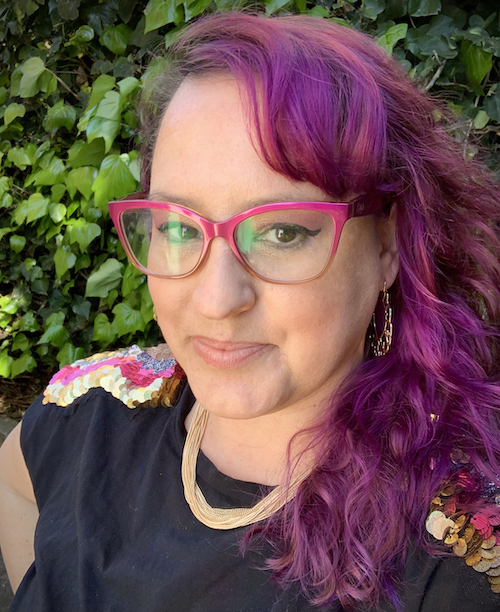
Event Description
A storytelling and poetry event w/ Q & A
Bio
Maya Chinchilla, author of “The Cha Cha Files: A Chapina Poética,” is a writer, educator and media maker. She teaches as a lecturer in Chicana/o Latino/a/x Studies, creative writing, English and LGBTQ studies. Drawing on a tradition of truth-telling and poking fun at the wounds we carry, Maya's writing and performance explores themes of historical memory, family, tenderness, sexuality, and alternative futures. She is also the editor of the forthcoming “CentroMariconadas,” an anthology of queer and trans Central American writing, and has been working on some pandemic projects including: co-hosting three seasons of a women of color-centered sci-fi podcast; writing and producing the show "Central American Unicorns in Space;" hosting a new arts and culture interview show called Live and Queer for QCC; taking online Puerto Rican Bomba classes and conducting online writing coaching sessions for creatives and writers alike.
Faculty facilitator Dr. Carolyn González
Community-Driven Archiving: The Watsonville is in the Heart Initiative
Meleia Simon-Reynolds
Thursday 3-4pm, Zoom
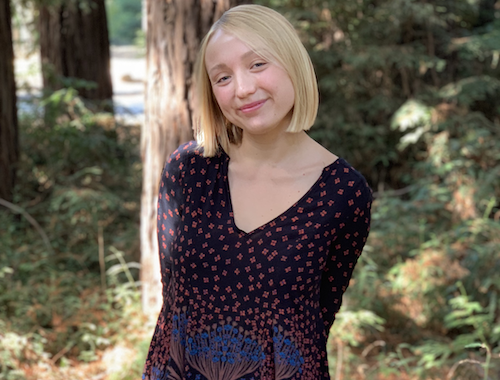
Event Description
Watsonville is in the Heart (WIITH) is a community-driven public history initiative to preserve and uplift stories of Filipino migration and labor in the greater Pajaro Valley of California’s Central Coast. The initiative documents the plight, struggles, vitality, and resilience of the manong generation of Filipino migrants who first settled in the Pajaro Valley in the early twentieth century. The project is spearheaded by Dioscoro "Roy" Respino Recio, Jr., the founder of the Filipino American heritage organization, The Tobera Project, in partnership with the University of California, Santa Cruz (UCSC). The digital archive project emerged from the WIITH community-university partnership. It includes oral histories, family photographs, family heirlooms, letters and correspondences, and newspaper clippings. The digital archive site officially launches on April 9, 2022. In the “Community-Driven Archiving” presentation, WIITH Digital Archive Co-Director Meleia Simon-Reynolds, will provide an overview of the local histories that are preserved in the archive. She will also discuss the WIITH team’s process for building an accessible digital archive and the values and ethical considerations that inform WIITH’s community-driven research methodologies. These include: forming strong relationships, privileging community perspectives, and promoting community agency and ownership.
Bio
Meleia Simon-Reynolds is a Ph.D. candidate in History at University of California, Santa Cruz. Her research examines photographs taken of and by Filipinx communities in Hawai‘i and the Pajaro Valley region during the twentieth century to uncover how Filipinx migrants and their families used and continue to use image-making and collecting practices as an alternative, subversive tactic as they navigated transpacific migration, racialized dependent labor, violence, and (neo)colonialism. Meleia began working with the Watsonville is the Heart (WIITH) community-driven research initiative in January 2021. Alongside Christina Ayson Plank, Meleia is the Co-Director of the WIITH digital archive project.
Faculty facilitator Dr. Dustin Wright
AAPI Panel Discussion
Voices Together: Reuniting and Rebuilding Communities
Thursday 4-5, Zoom
Event Description
Please join us for a stimulating conversation about the enormous increase in Asian hate crimes across the country and beyond. The COVID-19 pandemic has caused an alarming escalation of hate crimes against the Asian American and Pacific Islander (AAPI) communities. Anti-Asian hate crimes increased 339% nationwide in 2021 and there was a staggering 567% increase in San Francisco. These incidents of hate include violence, harassment, discrimination, shunning, and child bullying against Asian Americans and Pacific Islanders in the U.S. Today’s panel consists of two members from the local community and two CSUMB faculty members who will discuss the history of the AAPI communities in the Monterey area, what activities they have been involved with, and what we can do to end the violence and hate against people of AAPI heritage.
Speakers
Jason Agpaoa, Filipino National Historical Society, Asian Cultural Experience in Salinas
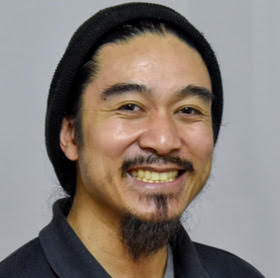
Larry Oda (JACL), Past National President of the Japanese American Citizens League, Buddhist Churches of America National Board
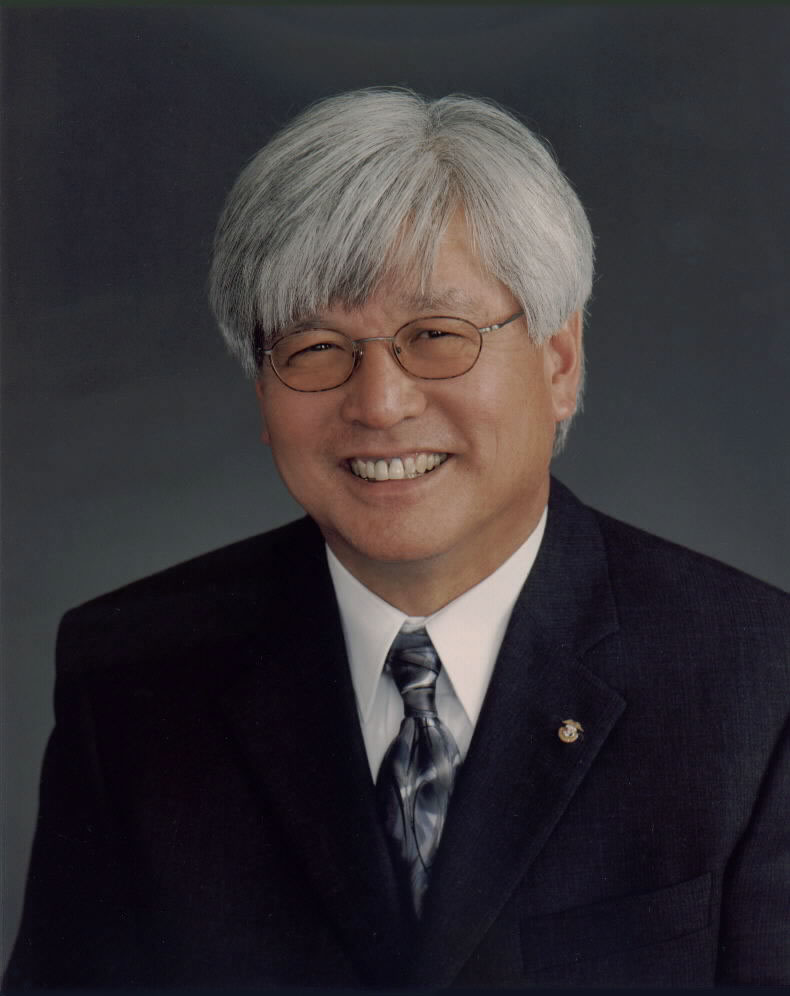
Eric Tao, Ph.D., Professor of Computer Science and Innovation, CSUMB
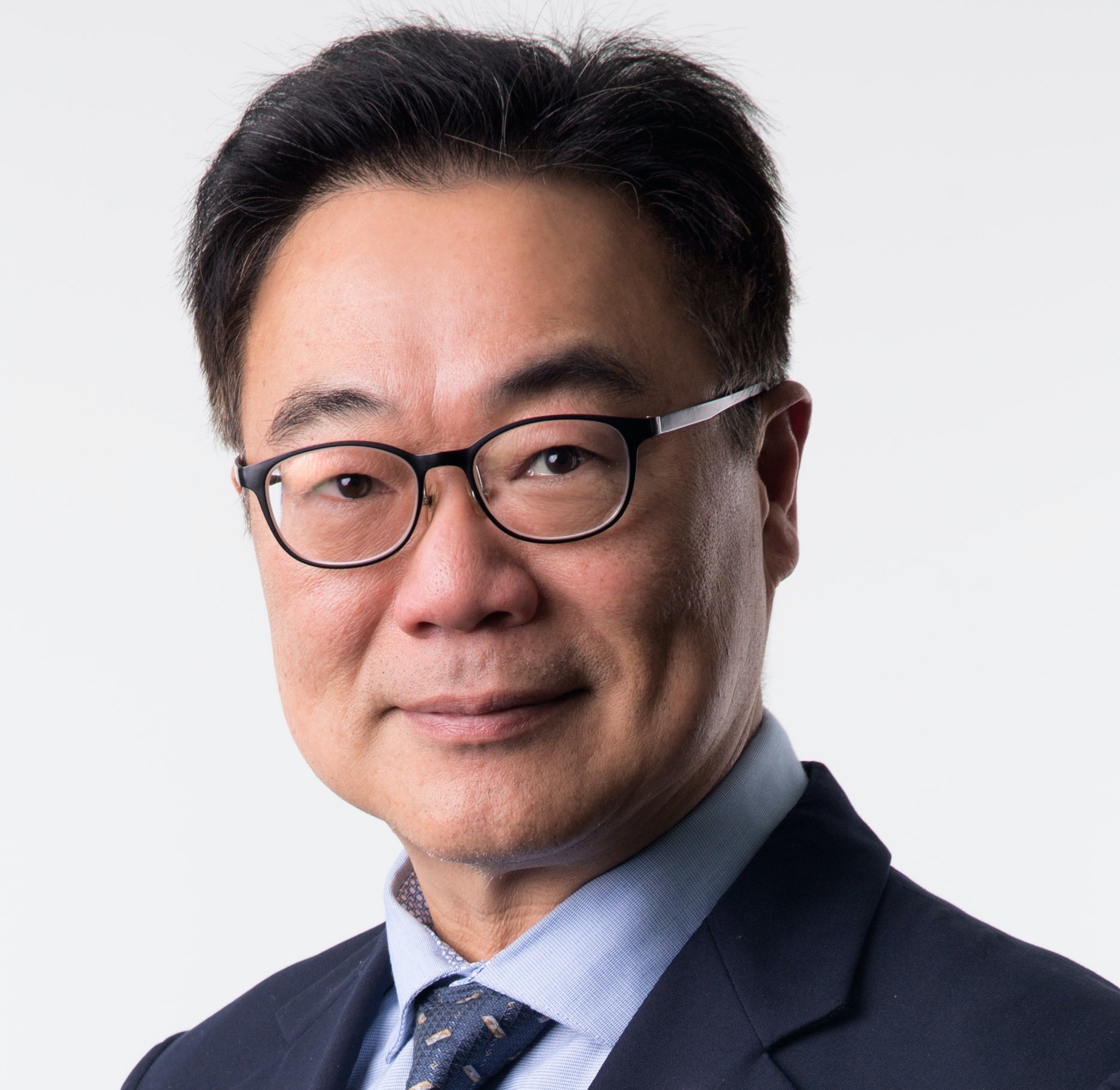
Angie Tran, Ph.D., Professor, School of Social, Behavioral & Global Studies, CSUMB
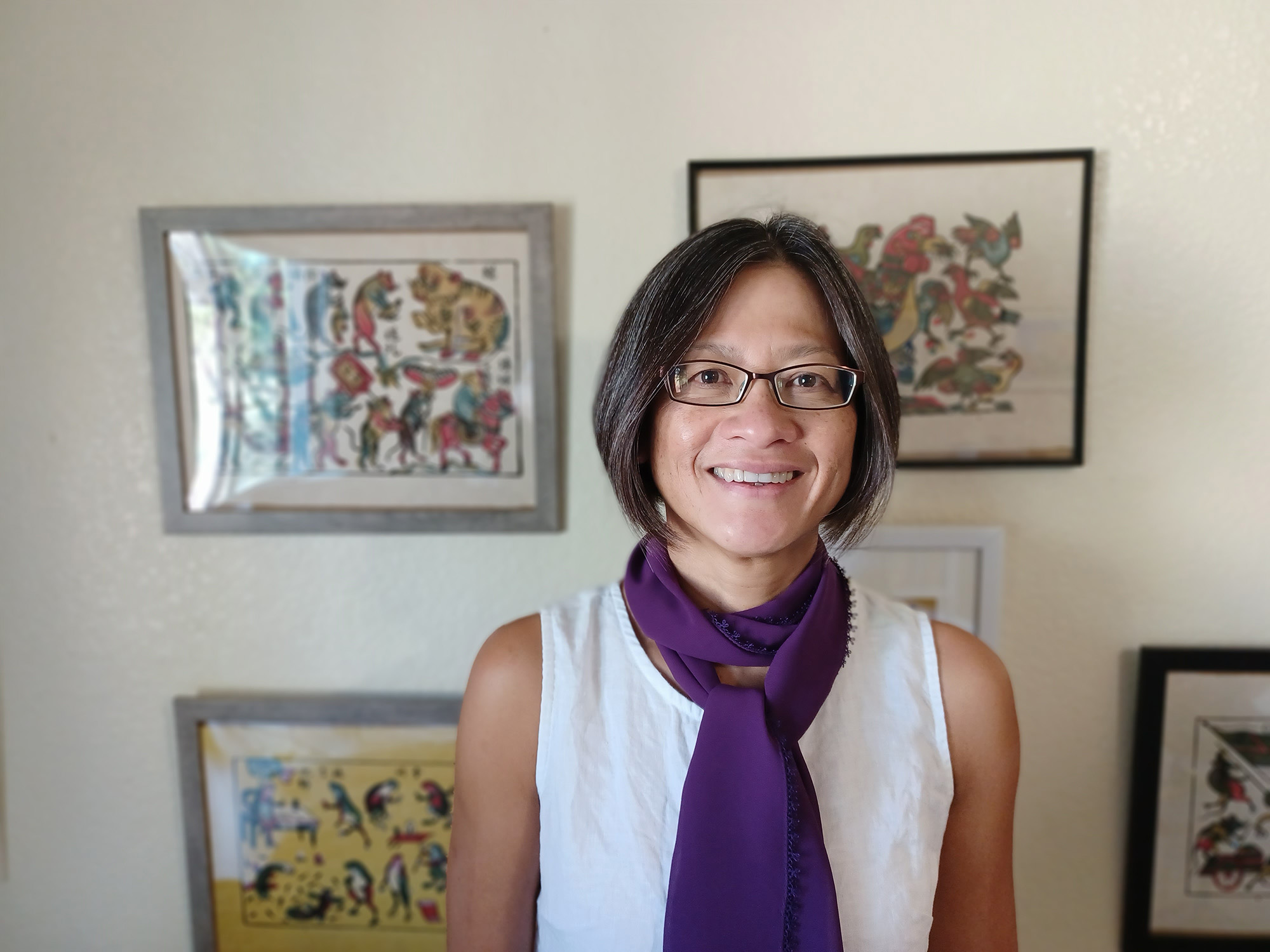
Bios
Jason Galinato Agpaoa is a museum enthusiast and board member for Asian Cultural Experience (ACE), general member for Filipino American National Historical Society (FANHS), Monterey Bay Chapter, and advisor for the Filipino American Youth Club of the Filipino Community of Salinas Valley. Inspired by his experiences as an Asian American Studies student at San Francisco State University and a decade of museum experience in the Bay Area and Central Coast, his dream is to practice and implement an Ethnic Studies Museum Education program at the future site of the Salinas Chinatown Museum and Cultural Center.
Larry Oda was born in a Justice Department Internment Camp in Crystal City, Texas during World War II and lives in Monterey. He went to Monterey City Schools and earned his BA and MA from California State University, Fresno. Larry was National President of the Japanese American Citizens League and is Chair Emeritus of the National Japanese American Memorial Foundation.
Dr. Eric Tao is a full Professor of Computer Science at CSUMB for over 20 years. He is the founding director of the Institute for Innovation and Economic Development at CSUMB. In 2021, he co-founded Coalition for Asian Justice in Monterey Bay. He is passionate about innovation, technology, and global economics and regularly speaks in international forums on these subjects. Dr. Tao obtained his bachelor's degree from Taiwan and his Ph.D. from the University of California, Irvine.
CSUMB Professor Angie Ngọc Trần teaches political economy. Her latest book, Ethnic Dissent and Empowerment: Economic Migration between Vietnam and Malaysia, integrates ethnicity, class, gender, religion, and cultural resources with worker resistance and empowerment. Her ongoing research interests are on Mexican H2A agricultural guestworkers, and Vietnamese domestic workers in Saudi Arabia.
Faculty facilitator Dr. Shigeko Sekine
Fandango y Convivencia: A Participatory Engagement in Music Making
Russell Rodríguez
Thursday 5-6pm, Zoom
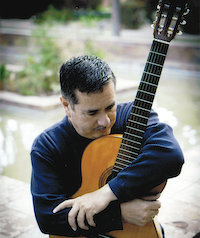
Event Description
Jarocho music of Southern Veracruz has been evident within communities of California as early on as the 1940s. Eduardo “Lalo” Guerrero recorded with the Trio Imperial the son jarocho, El Balajú in the late 1940s. Since then various groups and musicians provided communities throughout the state with wonderful presentations and performances of jarocho music. In 1989, however, when the Grupo Mono Blanco visited the Bay Area, a new proposal of the son jarocho was shared, in which the idea of “participatory” engagement through this expression superseded the common manner of “presentational performance” (Turino 2008). This new approach was based in the longtime practice of the fandango, a gathering in which music, song (poetry), and dance are centered within a larger social activity that participants in these gatherings framed as a convivencia (convivial interaction). I argue that the fandango celebrations ultimately lead to other types of interactive engagements between musicians, dancers and artists (recordings, concerts, workshops), but more importantly, reveal an affirmation and strengthening of community through a consciousness of shared history, mutual aid, cultural promotion, as well as political action.
Bio
Russell C. Rodríguez is an Assistant Professor of Music at UCSC. He has contributed chapters to various anthologies on Latina/o expressive culture and co-authored an article with George Lipsitz, “Turning Hegemony On its Head: The Insurgent Knowledge of Américo Paredes,” in the Journal of American Folklore. Rodríguez has worked as a curator for the Smithsonian Center for Folklife and Cultural Heritage annual American Festival, co-curating the “Latino Music Program” in 2004. In 2005 he co-produced the Smithsonian Folkways Recordings CD compilation Rolas de Aztlán: Songs of the Chicano Movement that featured the unsung Chicana/o musical artists and groups of the 1970s.
Faculty facilitator Dr. David Vila Dieguez
Gender justice and language education
Dr. Kris Knisely
Friday 10-11, Zoom
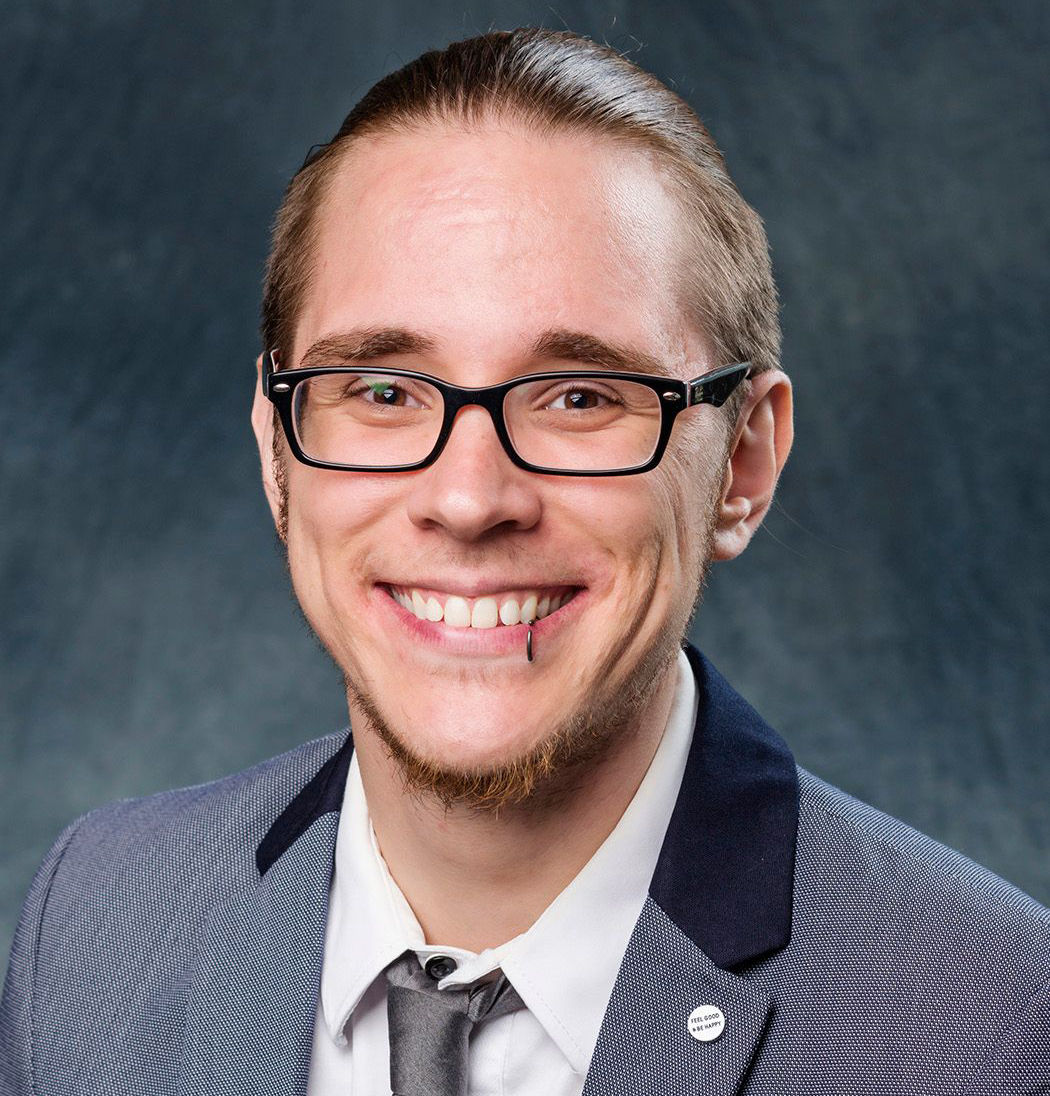
Gender justice and language education: Toward a more equitable and robust engagement with trans knowledges and linguistic practices
Event Description
Language teaching and learning can be a site of expansive possibilities for identity (re)construction, despite the ways that gendered impossibilities and invisibilities have often been allowed to persist. In the context of scant attention to gender in the curriculum, textbooks, research, and pedagogy of language classrooms, this talk offers trans-affirming queer inquiry-based pedagogies as one path toward more critical, equitable, and gender-just language pedagogies.
Bio
Kris Aric Knisely (Ph.D., Emory University) is Assistant Professor of French and Intercultural Competence as well as affiliated faculty in both SLAT and TSRC at the University of Arizona. Knisely's research broadly considers gender and sexuality in language teaching and learning and, in its most specific form, focuses on the linguistic and cultural practices of trans and nonbinary French language users, particularly as they can inform the articulation gender-just language pedagogies.
Faculty facilitator Dr. Rebecca Pozzi
Japanese Tea Ceremony
Tomoko Ogaki, Urasenke First Degree Instructor, Lecturer of Japanese, CSUMB
Friday 2-3:30, University Center Living Room
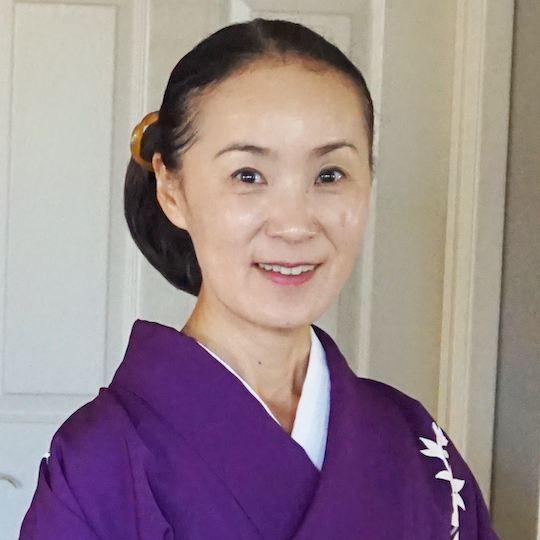
Hideko Russell, Urasenke First Degree Instructor, Associate Professor of Translation and Interpretation, MIIS
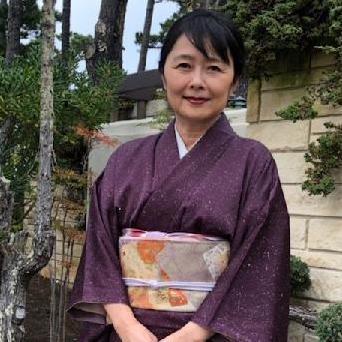
Anne Oda, Urasenke First Degree Instructor
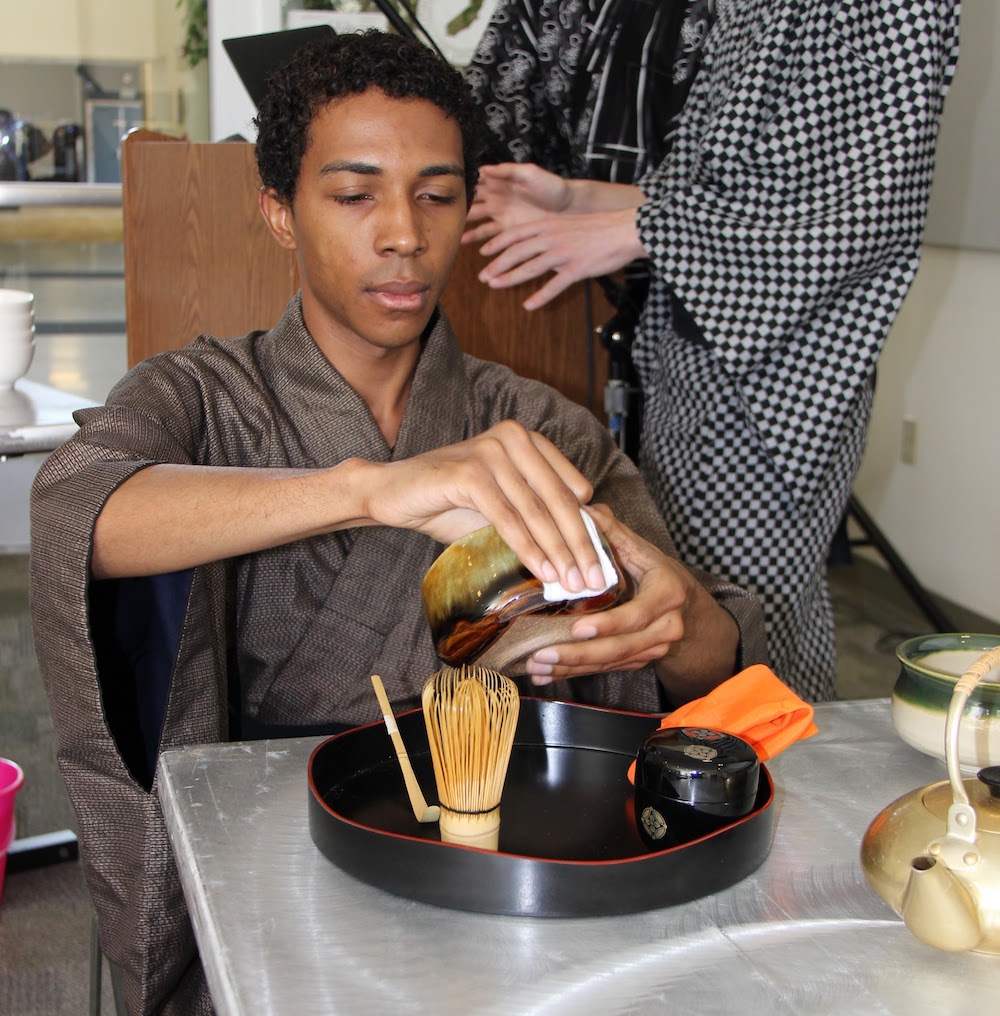
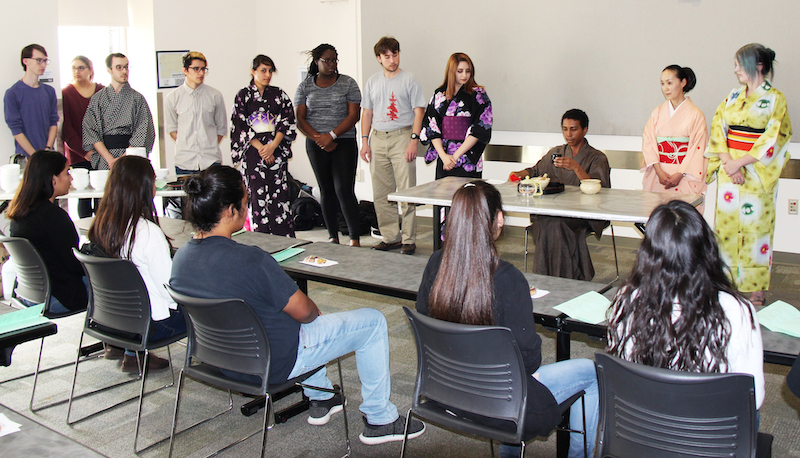
About Tea Ceremony
The word 'Chado,' also known as chanoyu, means "the way of tea" and is a spiritual and aesthetic discipline for refinement of the self. Known in Japanese as a "do," a 'way,' it centers on the activity of the host and guests spending a mutually heartwarming time together over a bowl of matcha tea. The host aims to serve the guest a bowl of tea, and the guest responds with thankfulness. It also infers that the time shared together can never be repeated.
The tea was introduced into Japan from China in the eighth century, it was at first used as a medicine. In the sixteenth century, the form of Chado that is practiced today was established by the tea master Sen no Rikyu. The ceremony was developed under the influence of Zen Buddhism, the aim of which is to purify the soul by becoming one with nature. The true spirit of the tea ceremony encompasses the feeling of harmony, respect, purity and tranquility.
Seating is limited. Please be sure to register and arrive on time in order to participate. 20 participants will gather around tables to observe and participate in the tea ceremony. Others can observe from a distance. The ceremony will take 45 minutes to complete and will give you time to enjoy the pleasant atmosphere and tranquility of the traditional Japanese tea ceremony. Take the time to enjoy the tea and Japanese sweets and relax with this rare cultural experience.
Faculty facilitator Dr. Shigeko Sekine
Akina Miyata and Bobby Phillips – Spring Sakura Jazz and Japanese music
Akina Miyata and
Bobby Phillips
Friday 4-5, World Theater
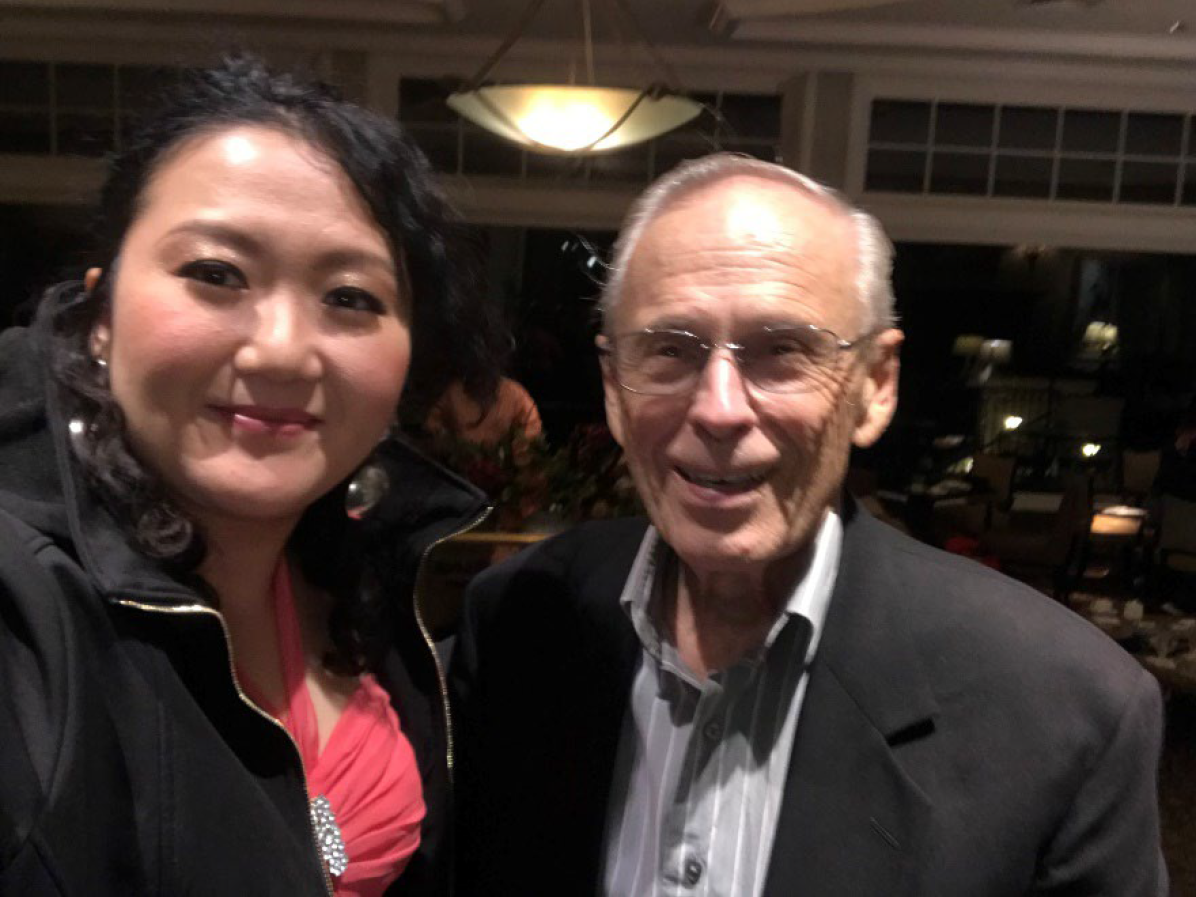
Akina Miyata and Bobby Phillips – Spring Sakura Jazz and Japanese music performance
Bios
Akina Miyata - The “Queen of Jazz” from the Osaka/Kansai region – Akina Miyata is considered to be one of the tops in jazz vocals from Japan! Akina has performed in many of the jazz clubs in Japan and in the United States. Akina Miyata has attracted top musicians from around Japan and has been televised on numerous occasions on Japan’s NHK Television Station. Recently she has been on the stage of The Apollo Theater, Harlem Jazz Club Sugar Bar, the Village NuBlu, and Here in Monterey at the Lodge at Pebble Beach. Born in Wakayama Japan, Living in Monterey, CA.
Bobby Phillips - Bob began his love affair with the piano at the age of 7, and has been playing professionally since he was 17 years old. A consummate musician and without a doubt one of the finest performers on the Monterey Peninsula, Bob Phillips specializes in all styles of music ranging from swing and pop to classical and jazz, all performed with a mix of integrity and flair.
Faculty facilitator Dr. Shigeko Sekine
MPA and WLC Music Sessions
Friday 5-6 pm, World Theater
Enjoy musical performances from talented musicians in the College of Arts, Humanities and Social Sciences.
Faculty facilitator Dr. David Vila Dieguez
Watsonville Taiko Group and Shinsho-Mugen Daiko
Five Fortunes of the Plum Blossom
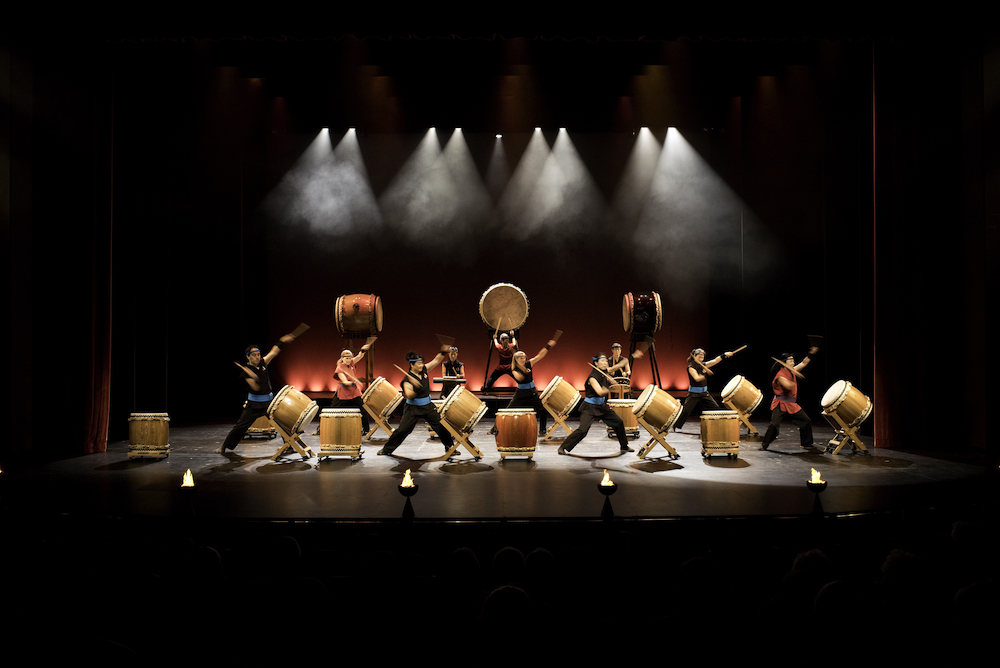
Friday 6-7, World Theater
Event Description
In the frosty months of February and March, a wonderful phenomenon can be seen across Japan; plum blossoms, although fragile, endure the bitter cold to open their petals. As they flower, they're said to bring with them a five-fold fortune: longevity, wealth, health, virtue, and destiny.
Taking heart from this message, Watsonville Taiko and Shinsho Mugen Daiko want to share the strength of the plum blossom this spring with the community. Taiko is a traditional presence in many festivals welcoming the turning of the seasons, and we are seeking to mark the transition between our long-endured winter and this new, hopeful spring. Through Taiko drumming, we will shake off the torpor of the cold and breathe life into a new chapter of our lives.
Bio
Watsonville Taiko Group was founded by Jim Hooker in 1991 to spread the joy of traditional Japanese drumming to the Monterey Bay Area. Through a wide range of classes and performances, we offer the chance for people to become involved in both music and their communities. We emphasize 'folk art', which values people’s participation with others in order to keep traditions alive. Watsonville Taiko - http://www.watsonvilletaiko.org
Shinsho-Mugen Daiko was founded in 1999 by Watsonville Taiko's artistic director, Ikuyo Conant. Shinsho means “celestial bodies” and Mugen means “source of dreams.” The group introduces a contemporary style of taiko with movements and powerful sounds.
Faculty Facilitator Dr. Shigeko Sekine
Parking and Getting Here
Coming to campus information. Parking for events at World Theater and University Center is suggested to use Lot 59. Parking permits must be displayed at all times. Purchase a permit in most parking lots or purchase online (select CSU Monterey Bay from the list) and print in advance.
For more information or disability accommodations
Contact wlc@csumb.edu | 831-582-3863
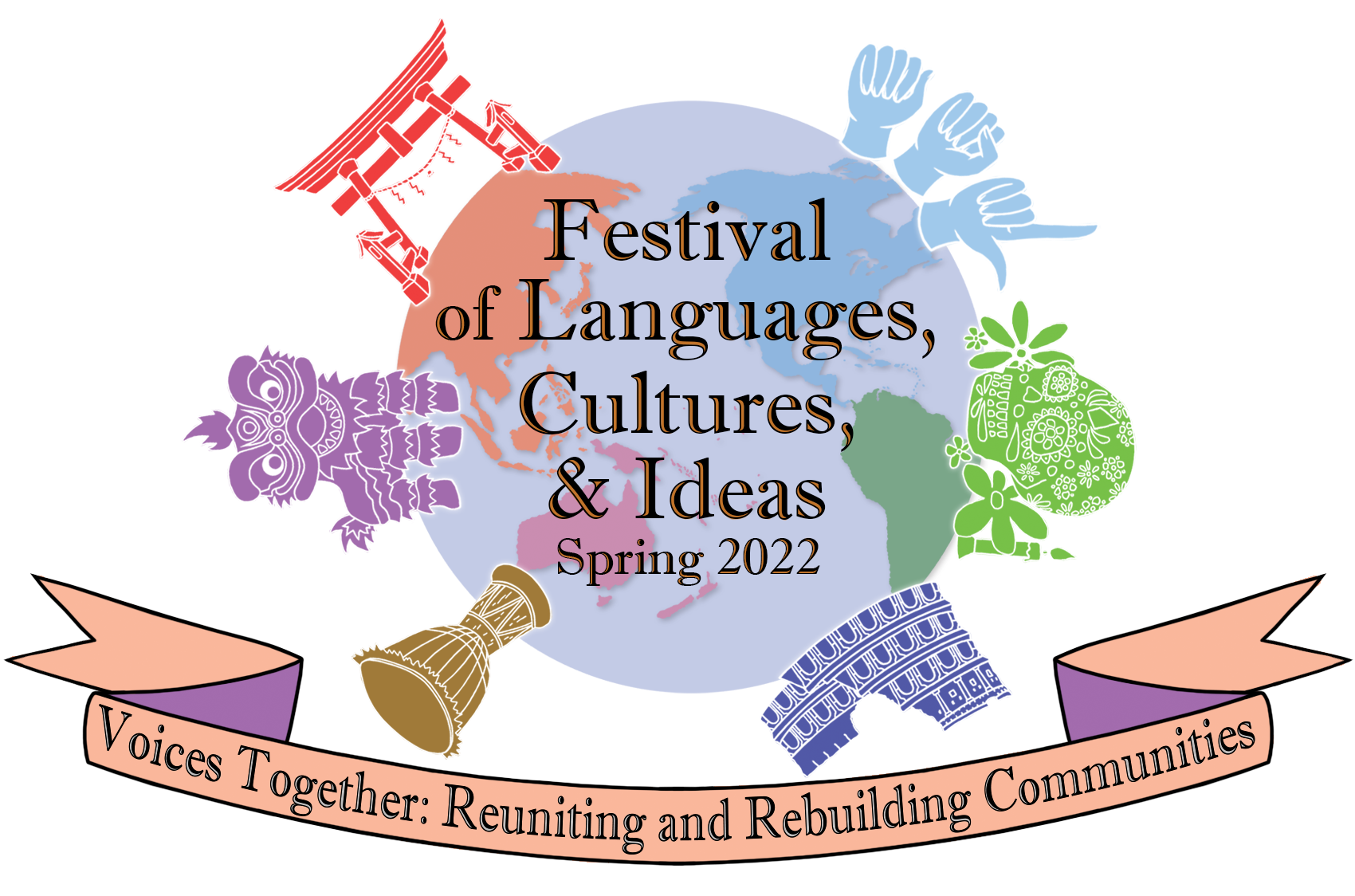
2021-2019 Speakers and Events
John Tateishi
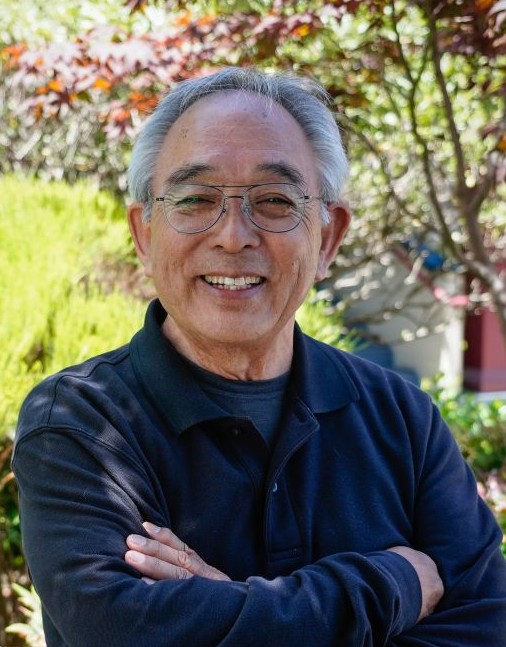 John Tateishi
John TateishiBook Talk - Redress: The Inside Story of the Successful Campaign for Japanese America Reparations, Thursday Mar. 11, 2021, 4:00pm - 5:00pm
John Tateishi was almost three years old when he and his family were forcibly removed from their home in Los Angeles and imprisoned at Manzanar, one of ten American-style concentration camps in which the entire Japanese American population was incarcerated during WWII. Mr. Tateishi launched the Japanese American Citizens League’s (JACL) redress campaign in 1978 and directed the public affairs and legislative strategies of the campaign until 1986, two years before the campaign ultimately culminated with the signing of the Civil Liberties Act. Ten years later, as the JACL’s National Director, he brought the JACL onto the national stage after 9/11 as an important national voice challenging the Bush administration’s policies that targeted Arab and Muslim communities and undermined the civil liberties of all Americans.
Faculty facilitator: Dr. Dustin Wright
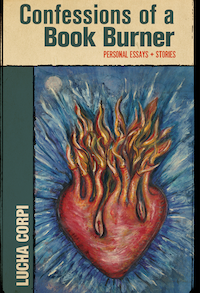 Lucha Corpi, Confessions of a Book Burner
Lucha Corpi, Confessions of a Book BurnerA Reading and Conversation with Lucha Corpi, Thursday, Mar 25, 3-4:00 pm
Bio: Lucha Corpi is a retired Adult Education teacher in the Oakland Unified School District. She is also the author of two collections of poetry (Spanish with English translations); two bilingual children's books; a novel; and five crime novels (English) featuring P.I. Gloria Damasco; a book of personal essays and family stories (English). She has been recognized with multiple awards/fellowships including the National Endowment for the Arts, Oakland Cultural Arts, PEN-Oakland, International Latino Books awards.
Faculty facilitator: Dr. Carolyn Gonzalez
Becoming Hispanic: Sociolinguistic perspectives on the classification of Latinxs in the US Census, Thursday, April 8, 3-4:00 pm
Leeman has published on the racialization of Latinxs in the US; multilingualism in the built environment; language and race in censuses; identities and ideologies in heritage language education, and critical pedagogy in the teaching of Spanish. Recent publications include articles in the International Journal of the Sociology of Language, Latino Studies, and the Journal of Language, Identity & Education; as well the monograph Speaking Spanish in the US: The Sociopolitics of Language, co-authored with Janet Fuller (a Spanish language edition will be published by Multilingual Matters in 2021).
Leeman currently serves on the Executive Committee of the American Association of Applied Linguistics as well as the editorial boards of the journals Language Policy, Linguistic Landscape, Spanish as a Heritage Language, and Spanish in Context.
Bio: Jennifer Leeman is Professor of Spanish Linguistics at George Mason University, where her teaching and research focus on the sociopolitics of language, multilingualism, Spanish in the US, and the teaching of Spanish as a heritage language. Her work is interdisciplinary, and draws from the fields of Latinx studies, linguistic anthropology, and sociolinguistics as well as critical applied linguistics.
Faculty facilitator: Dr. Rebecca Pozzi
Walt Wolfram
Talking Black in America, Thursday, April 22, 3-5:00 pm (Zoom registration to follow)
About the film and filmmaker: Talking Black in America addresses African American English and language-based discrimination. We have invited the filmmaker, Dr. Walt Wolfram, to screen this film (1 hour), discuss it (30 minutes), and engage in a Q&A (30 minutes).
Bio: Dr. Wolfram is the William C. Friday Distinguished University Professor at North Carolina State University. He is a leader in the study of social and ethnic dialects, and has pioneered the study of urban African American English, supporting the legitimacy of African American English as a systematic language system.
Faculty facilitator: Dr. Rebecca Pozzi
Tozaburo Yanagiya
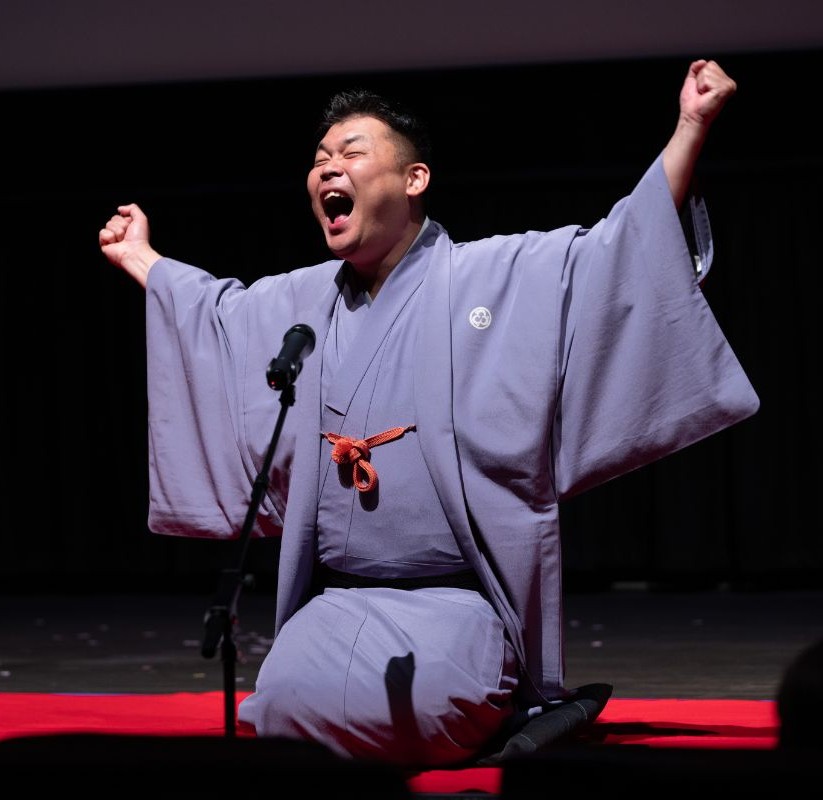 Tozaburo Yanagiya
Tozaburo Yanagiya"The Art of Rakugo: Traditional Japanese Entertainment", Thursday, May 6, 2021, 3-4:00 pm (Zoom registration to follow)
Please join us for a rare opportunity to experience traditional Japanese Storytelling! Mr. Yanagiya will be offering a workshop on Rakugo gestures and techniques in English, followed by a performance of a famous Rakugo story in Japanese with English captioning. Rakugo is a form of traditional Japanese storytelling that is often performed as a comedy using two props; a fan and a hand cloth.
Bio: Tozaburo Yanagiya is an award-winning master of Rakugo, the 400-year-old tradition of Japanese comedic storytelling. He has performed Rakugo in English and Japanese all around the world to increase awareness and entertain through this lesser-known style of performance art. He is Visiting Associate Professor at the University of East Asia, Japan; and a member of the General Incorporated Association Rakugo Kyokai.
Faculty facilitator: Dr. Yoshiko Saito-Abbott
Mas Hashimoto
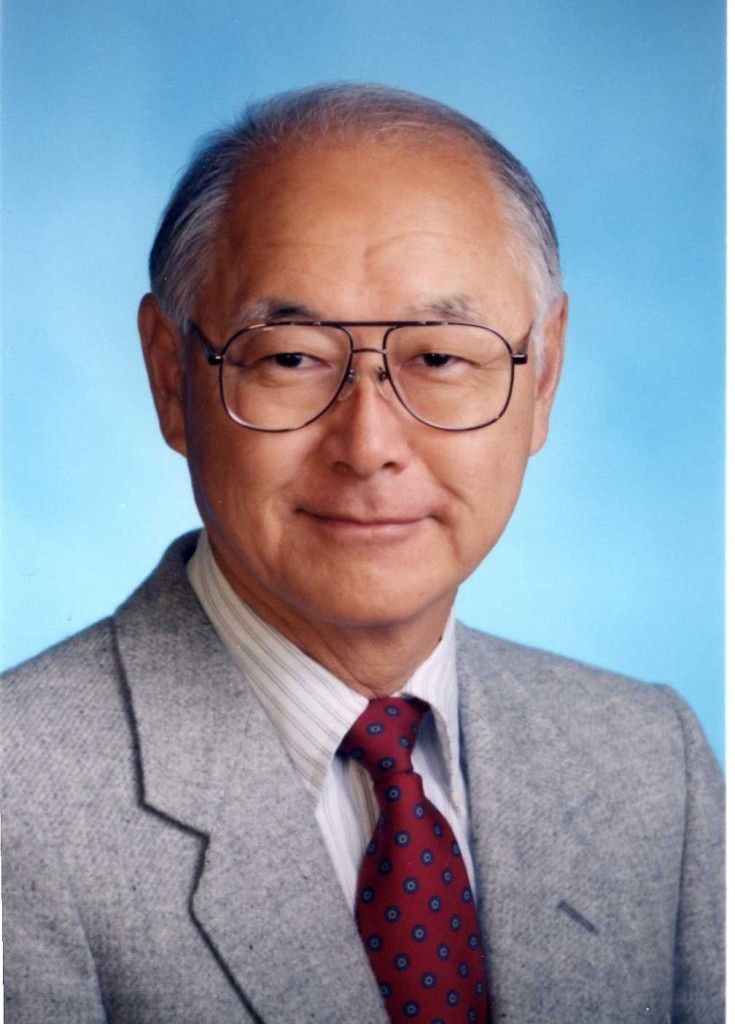 Mas Hashimoto
Mas HashimotoRacism and America's Concentration Camps, Thursday Feb. 25, 2021, 4:00pm - 5:00pm
Mas Hashimoto will compare how Japanese American incarceration during World War II and the massive discrimination of Muslims post 9-11 are both founded in hate and racism. Mas Hashimoto was a child when his family was taken from their Watsonville home in 1942. He was sent to a federal prisoner-of-war camp during World War II because of racism, war hysteria, and political leadership failure. Mas taught US History in the Pajaro Valley Unified School District until his retirement. He speaks to groups of students about the wartime experience of Japanese Americans during World War II to ensure that this injustice never repeats itself again.
Download the event flyers
Faculty facilitator: Dr. Dustin Wright
Spring 2021 Theme: Global Communities: Reconnecting in Times of Struggle
FLCI 2021 Guest Speakers and Presentation Information
John Tateishi
 John Tateishi
John TateishiBook Talk - Redress: The Inside Story of the Successful Campaign for Japanese America Reparations, Thursday Mar. 11, 2021, 4:00pm - 5:00pm
John Tateishi was almost three years old when he and his family were forcibly removed from their home in Los Angeles and imprisoned at Manzanar, one of ten American-style concentration camps in which the entire Japanese American population was incarcerated during WWII. Mr. Tateishi launched the Japanese American Citizens League’s (JACL) redress campaign in 1978 and directed the public affairs and legislative strategies of the campaign until 1986, two years before the campaign ultimately culminated with the signing of the Civil Liberties Act. Ten years later, as the JACL’s National Director, he brought the JACL onto the national stage after 9/11 as an important national voice challenging the Bush administration’s policies that targeted Arab and Muslim communities and undermined the civil liberties of all Americans.
Faculty facilitator: Dr. Dustin Wright
Lucha Corpi
 Lucha Corpi, Confessions of a Book Burner
Lucha Corpi, Confessions of a Book BurnerA Reading and Conversation with Lucha Corpi, Thursday, Mar 25, 3-4:00 pm
Bio: Lucha Corpi is a retired Adult Education teacher in the Oakland Unified School District. She is also the author of two collections of poetry (Spanish with English translations); two bilingual children's books; a novel; and five crime novels (English) featuring P.I. Gloria Damasco; a book of personal essays and family stories (English). She has been recognized with multiple awards/fellowships including the National Endowment for the Arts, Oakland Cultural Arts, PEN-Oakland, International Latino Books awards.
Faculty facilitator: Dr. Carolyn Gonzalez
Jennifer Leeman
Becoming Hispanic: Sociolinguistic perspectives on the classification of Latinxs in the US Census, Thursday, April 8, 3-4:00 pm (Zoom registration to follow)
Leeman has published on the racialization of Latinxs in the US; multilingualism in the built environment; language and race in censuses; identities and ideologies in heritage language education, and critical pedagogy in the teaching of Spanish. Recent publications include articles in the International Journal of the Sociology of Language, Latino Studies, and the Journal of Language, Identity & Education; as well the monograph Speaking Spanish in the US: The Sociopolitics of Language, co-authored with Janet Fuller (a Spanish language edition will be published by Multilingual Matters in 2021).
Leeman currently serves on the Executive Committee of the American Association of Applied Linguistics as well as the editorial boards of the journals Language Policy, Linguistic Landscape, Spanish as a Heritage Language, and Spanish in Context.
Bio: Jennifer Leeman is Professor of Spanish Linguistics at George Mason University, where her teaching and research focus on the sociopolitics of language, multilingualism, Spanish in the US, and the teaching of Spanish as a heritage language. Her work is interdisciplinary, and draws from the fields of Latinx studies, linguistic anthropology, and sociolinguistics as well as critical applied linguistics.
Faculty facilitator: Dr. Rebecca Pozzi
Walt Wolfram
Talking Black in America, Thursday, April 22, 3-5:00 pm (Zoom registration to follow)
About the film and filmmaker: Talking Black in America addresses African American English and language-based discrimination. We have invited the filmmaker, Dr. Walt Wolfram, to screen this film (1 hour), discuss it (30 minutes), and engage in a Q&A (30 minutes).
Bio: Dr. Wolfram is the William C. Friday Distinguished University Professor at North Carolina State University. He is a leader in the study of social and ethnic dialects, and has pioneered the study of urban African American English, supporting the legitimacy of African American English as a systematic language system.
Faculty facilitator: Dr. Rebecca Pozzi
Tozaburo Yanagiya
 Tozaburo Yanagiya
Tozaburo Yanagiya"The Art of Rakugo: Traditional Japanese Entertainment", Thursday, May 6, 2021, 3-4:00 pm (Zoom registration to follow)
Please join us for a rare opportunity to experience traditional Japanese Storytelling! Mr. Yanagiya will be offering a workshop on Rakugo gestures and techniques in English, followed by a performance of a famous Rakugo story in Japanese with English captioning. Rakugo is a form of traditional Japanese storytelling that is often performed as a comedy using two props; a fan and a hand cloth.
Bio: Tozaburo Yanagiya is an award-winning master of Rakugo, the 400-year-old tradition of Japanese comedic storytelling. He has performed Rakugo in English and Japanese all around the world to increase awareness and entertain through this lesser-known style of performance art. He is Visiting Associate Professor at the University of East Asia, Japan; and a member of the General Incorporated Association Rakugo Kyokai.
Faculty facilitator: Dr. Yoshiko Saito-Abbott
Mas Hashimoto
 Mas Hashimoto
Mas HashimotoRacism and America's Concentration Camps, Thursday Feb. 25, 2021, 4:00pm - 5:00pm
Mas Hashimoto will compare how Japanese American incarceration during World War II and the massive discrimination of Muslims post 9-11 are both founded in hate and racism. Mas Hashimoto was a child when his family was taken from their Watsonville home in 1942. He was sent to a federal prisoner-of-war camp during World War II because of racism, war hysteria, and political leadership failure. Mas taught US History in the Pajaro Valley Unified School District until his retirement. He speaks to groups of students about the wartime experience of Japanese Americans during World War II to ensure that this injustice never repeats itself again.
Faculty facilitator: Dr. Dustin Wright
For more information or disability accommodations, contact wlc@csumb.edu | 831-582-3863
Download the event flyers
FLCI 2019 Photo Album
2019 Soran Bushi performance on YouTube
2020 Events postponed due to pandemic